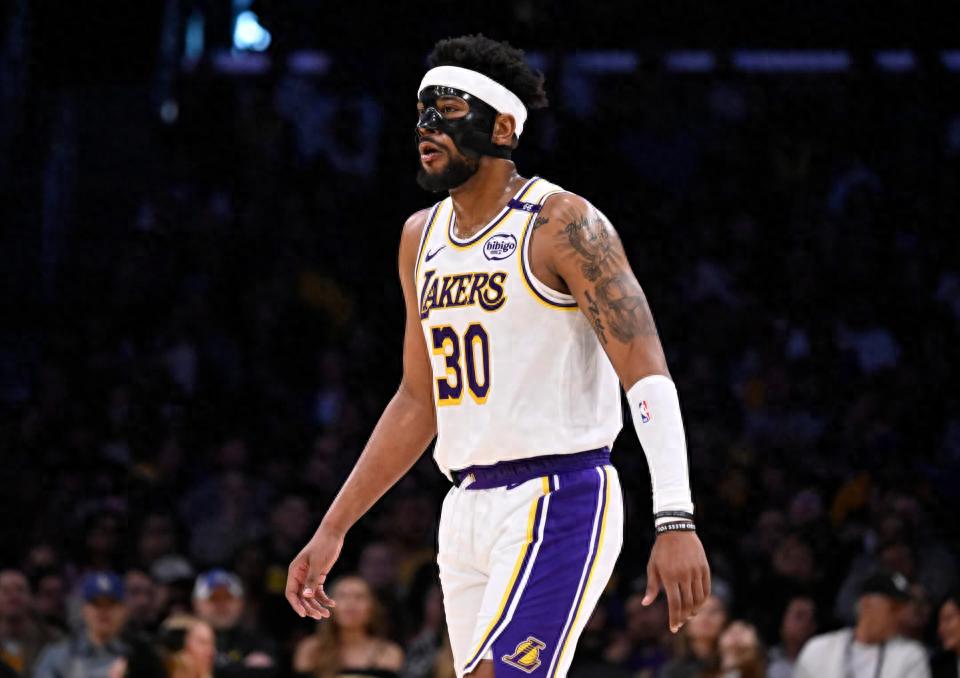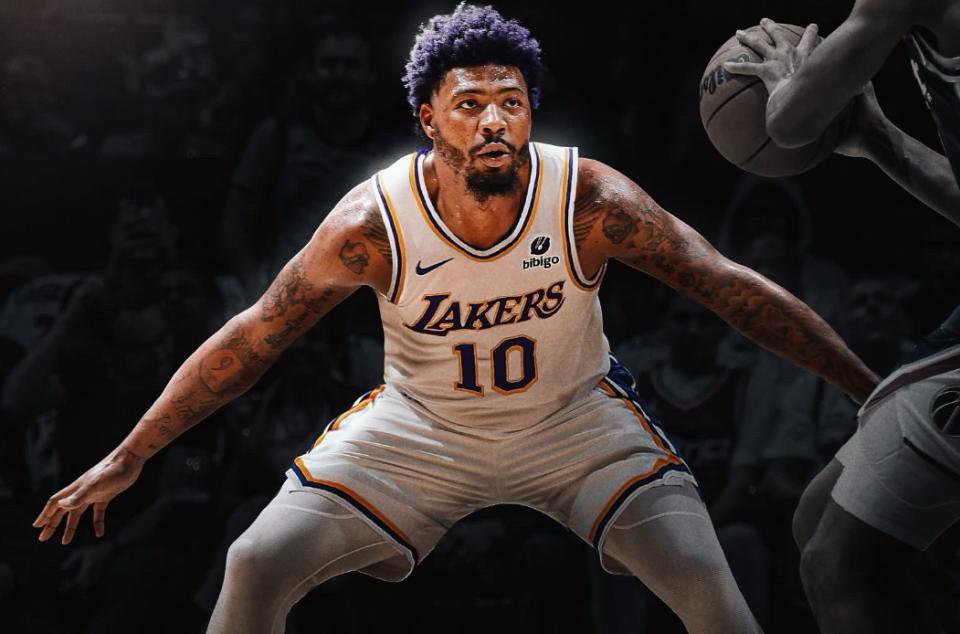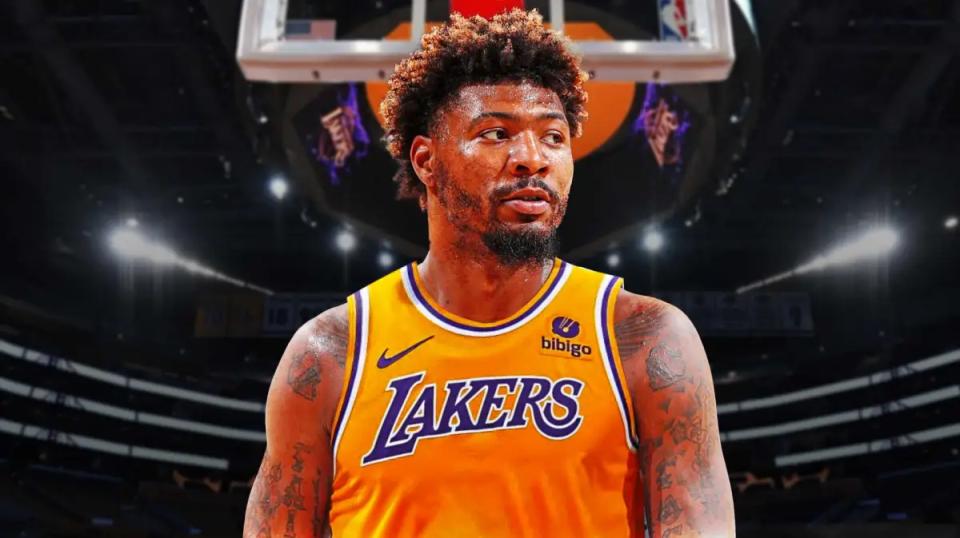The Lakers have waived Goodwin! After letting go of two players, they are making room for Smart, with the beat writer listing the new recruit's pros and cons.
On July 21, according to renowned journalist Shams, sources from ESPN revealed that the Los Angeles Lakers have waived guard Jordan Goodwin. Goodwin became a key rotation player for Redick towards the end of last season, playing in 29 games and participating in 4 playoff matches. The Lakers' decision to cut Goodwin and Milton is to create space for the arrival of new recruit Marcus Smart.


The Lakers recently exercised Goodwin's team option worth $2.3 million, but only $25,000 of his contract is guaranteed. However, if he remains on the Lakers' roster in January, the contract will become fully guaranteed. By waiving Goodwin and Milton, the Lakers can sign Smart using the mid-level exception (2 years, $11 million).
Beat writer Buha also discussed Smart's pros and cons in today's podcast, as follows—
Pros
He was the 2022 Defensive Player of the Year and is an elite perimeter defender that the Lakers desperately need. Although he may not be at the same level as in 2022, his advanced defensive metrics remain impressive, with a defensive ability rating of 8 or 8.5 out of 10. He is expected to be the Lakers' best defender and should be in the starting lineup.

He can defend positions 1 to 4, leaning more towards defending wings rather than ball handlers, but is capable of guarding multiple positions.
He is an elite defensive organizer with excellent steal rates and defensive stats, adept at stripping the ball, drawing offensive fouls, anticipating passing lanes, and applying pressure on the ball, making him a highly disruptive defender.
He can defend guards in pick-and-roll situations and switch to contest bigger players inside, providing versatility to the team's defensive strategies. He fits well into the Lakers' defensive system that emphasizes switching and can adapt to different defensive strategies depending on the lineup.
He plays a positive role in defensive communication and building the team's defensive culture, similar to the previous Finney-Smith. While he may not have flashy defensive stats, he can enhance the overall defensive performance through communication and other means.
On the offensive end, he possesses some secondary ball-handling and playmaking skills, averaging over 4 assists per game in 8 seasons of his career. He is the best passer and playmaker on the Lakers outside of LeBron, Doncic, and Reaves, surpassing players like Vincent, LaRavia, and Goodwin.
He has averaged over 10 points per game in 7 seasons, capable of hitting open three-pointers, attacking close-range defenses, participating in pick-and-rolls, and driving to the basket, especially showing good performance in transition offense.
He is very suitable to partner with Reaves and Doncic, being an ideal wing-type guard who can run off the ball, hit three-pointers, and serve as a secondary playmaker.
His low-cost signing has significant upside potential; if he can return to his level from a few years ago or perform at 70%-80% of his ability, he will far exceed his contract value.
Cons
In the past two seasons, he has only played in 54 games, and in 11 seasons, he has played over 70 games in only two seasons. He is expected to miss more than 15 games each season, with age and attendance being major concerns. At 31, the risk of decline in performance for a role player is significant, and it is difficult to determine whether any decline is due to injury or age.

He has notable issues with shot selection and turnovers, often shooting below 30% on pull-up threes in recent seasons while still frequently attempting them; his passing can sometimes be overly flashy, leading to unnecessary turnovers.
His offensive efficiency is low, with a career shooting percentage never exceeding 43%, and 8 seasons below 40%; his career three-point shooting percentage is 32.4%, and his catch-and-shoot percentage is only around 33%-34%, making him a below-average shooter. Opponents will leave him open for shots, impacting the team's offensive spacing.
Defensively, he has declined compared to his peak, struggling against faster, more athletic guards, often committing reach-in fouls, failing to address the Lakers' defensive issues against speedy guards, and as a guard, he has below-average athleticism, meaning the Lakers still need more perimeter athleticism.
His rebounding ability is poor, ranking low in offensive rebounds, defensive rebounds, and rebound rates within the Lakers' roster, falling behind many players who seem less capable than him.
His performance metrics have been declining over the past two years, raising questions about whether he can return to his Boston-level performance. If he cannot recover, it will impact the Lakers' ceiling.


Wonderfulshortvideo
Ja tough chasedown rejection 🏃 🚫


Shai Gilgeous-Alexander joins Wilt Chamberlain (3x) as the only players in NBA history to total 40+ pts, 10+ ast, and 5+ reb in a game on at least 80% shooting from the field 📈 💪


Giannis jams it through traffic 🔥


SGA gets inside for 2️⃣, putting him at 40pts on the night ❗️


Great @Charlotte Hornets sequence 🏀


Super tough take 👏


Great move 👏








 Links
Links
 Contact
Contact
 App
App


